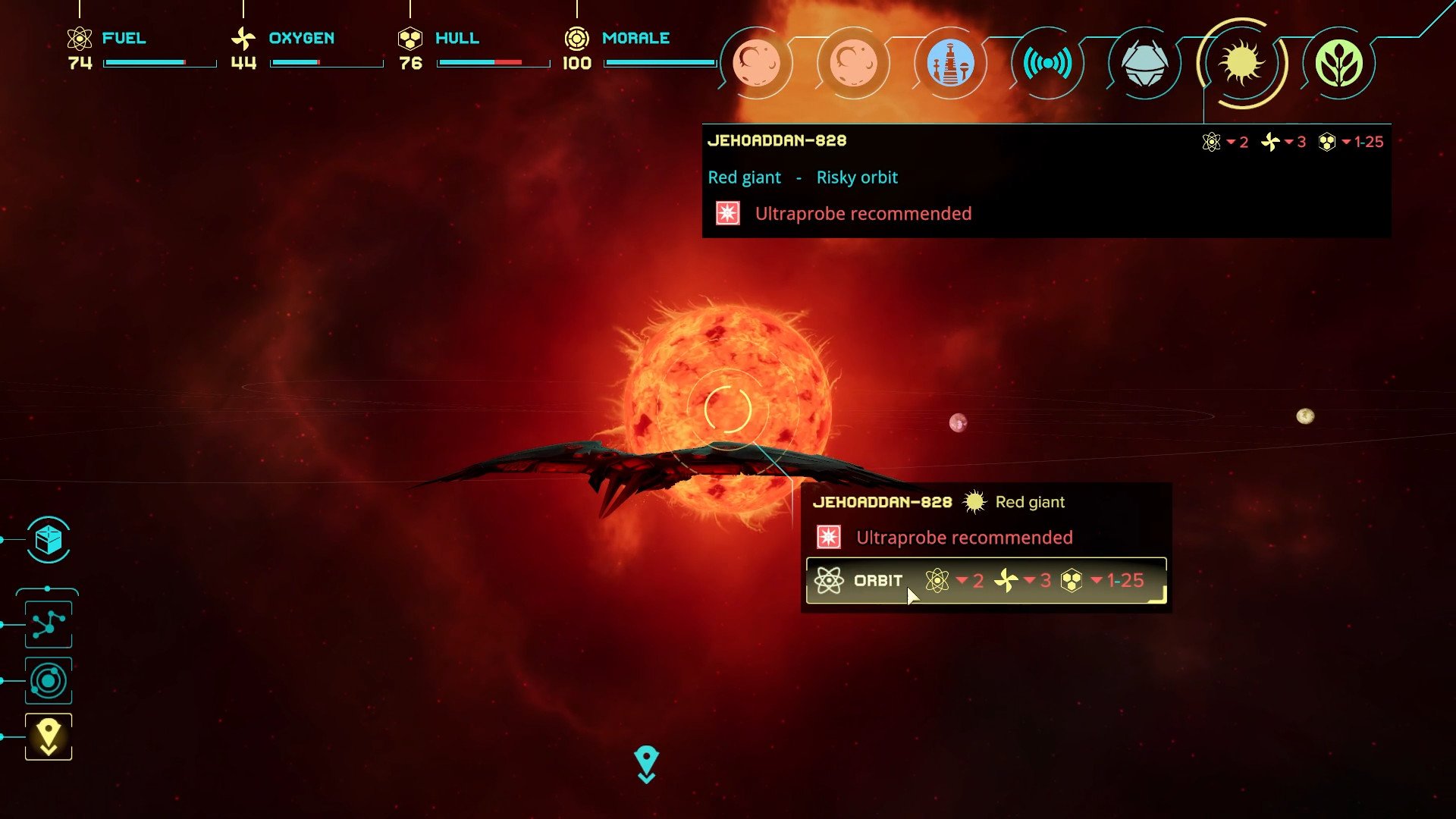Review | Out There: Oceans of Time - A Monotonous Expedition
When reviewing space movies for Vanity Fair, retired astronaut Chris Hadfield spoke of the romance and exuberance of space exploration, “What disappointed me most about [the movie] First Man was how sad everybody was, “he frowned. “Everybody inside was glum, and space flight is joyful, it’s hilarious, it’s magic. You can fly, you are seeing the whole world. These guys were going to the moon.” If anything, it proved that the allure of space exploration is no myth. Here we have Hadfield, a literal space voyager, demystifying popular misconceptions of space missions, while still rhapsodizing about its allure under the same breath. Not to squash our collective fascination with space with the perils and humdrum realities of preparing for space flight, but to tell us that the galaxy is every bit as enticing to astronauts as it is for us regular folks.
Behold. A Sun!
Anyway, back to work.
And then there’s Out There: Oceans of Time. A space exploration game that’s part resource management, part roguelike, part interactive fiction and all busywork, Oceans of Time purports to be a “space survival epic”, but exudes very little of the interstellar charm other space epics like Mass Effect, No Man’s Sky and even Dead Space possess—the latter being a horror game about surviving the remnants of a derelict space station infested with alien ghouls. But for a brief moment, I was enticed by the thrilling prospect of spacefaring that Oceans of Time initially promises. You can travel across vast cosmos, filled with irradiated planets and gaseous orbs. You can interact with strange lifeforms, whose appearances range from viscous blobs to gleaming automatons, even learning their language to better barter with them. You can embark on dangerous expeditions in bizarre and hazardous environments, from volcanic mountain ranges to forested places with gaudy, oversized flora. But these activities are sadly perfunctory, put together like an odd laundry list of things as a bland simulacrum of space travel.
Hey dude, why the long face… and long torso.
The biggest problem is that Oceans of Time conflates being mechanically dense with complexity. Say you’re facing a problem, and someone suggests that the solution is to dutifully carry out a multitude of tasks every single time the problem arises. This doesn’t make the process of solving the problem fascinating; instead, it becomes an overly tedious affair. That, in a nutshell, is Oceans of Time, for in its rush to ascribe some degree of arduousness and risks to space travel, the game has slathered layers, and layers, and layers of arbitrary rules to follow.
Welcome to this unexplored world. Go get some stuff.
Take for instance the ship you’re on. A spaceship, as with most modern-day vehicles, needs to be run on fuel. Its crew needs oxygen to survive. The hull of your ship also needs constant maintenance. You’ll also need to look out for your crew’s morale, which can dip when you travel too frequently on a dilapidated ship. To prevent these from depleting, you’ll need to harvest resources across planets, which in turn can be gathered by probing gaseous planets, drilling rocks, or trading for these very resources in space colonies. You can also go on expeditions—that means travelling on foot on these planets—for more resources. Then there are random text events that materialize during your travels, which can either award you with more resources, or items such as blueprints and useful trinkets. At the same time, there are civilizations you can visit, but these are merely a veneer of activities on a randomly generated planet where bartering mostly takes place. There are more fetch-and-carry tasks to complete that I won’t delve into, but imagine these resource gathering happening in repetitive cycles, as your ship makes its slow, dreadful slog across the galaxy towards your destination.
At times, Oceans of Time can be punishing, but this largely stems from unfamiliarity with the game’s systems, rather than dumb video game luck or logic. I once destroyed a piece of essential equipment to build an upgraded one, not realising that the new equipment cannot harvest the fuel necessary to keep the ship going. I also discarded a stack of resources by mistake, and abandoned my ship for another floating space coffin that’s much worse for wear. While all of these might seem like the beginning of a great space survival recovery tale, it usually just ends up forcing you to slowly partake in tasks you have already done to get back to where you were before.
Oh probe launching. Just like everyone’s favourite part of Mass Effect!
But most of all there’s none of the wonderment of space travel; Oceans of Time is instead defined by the doldrums that resemble the bureaucracy of deskbound jobs. There are few breathtaking sights of alien moons, no inexplicable magic of space voyage, no fear or trepidation of visiting uncharted new universes. You’re just pushing buttons. Or clicking through windows.
I’d admit that I’ve spent at least eight hours pressing on these buttons and dragging resources from frame to frame. I’ve watched with some satisfaction when the crew manages to survive yet another calamitous event: a friendly exchange with aliens gone awry depicted via text events, the ship veering too close to a black hole, or the crew simply weathering through a debilitating illness. But these are merely a series of pleasing routines: press enough buttons, and your fuel/oxygen/hull/morale meter will inevitably see a temporary spike and offer that short burst of dopamine. It’s hardly the stuff of imagination, curiosity and grandiose that power space epics. As it stands, Oceans of Time has now done the unthinkable: it made space travel unexciting and stodgy. Hadfield would be perturbed, I think, in my dour expression throughout it all.










